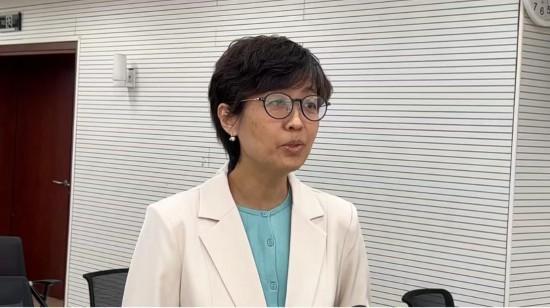What are the characteristics of influenza A? How to prevent key groups?

[ad_1]
According to the influenza monitoring of the disease control department, the current level of influenza virus activity in my country has increased, mainly influenza A. What are the characteristics of influenza A, should we use antiviral drugs? How to prevent key groups? Is it possible to superimpose infection with influenza A and new crown?
In response to the hot issues of influenza A prevention and control that are of public concern, the National Health Commission recently organized authoritative experts Wang Guiqiang, Director of the Department of Infectious Diseases, Peking University First Hospital, Tong Zhaohui, Vice President of Beijing Chaoyang Hospital, and Wang Quan, Director of the Emergency Department of Beijing Children’s Hospital, to answer the questions. .
Hot spot 1: What are the characteristics of Influenza A? Do we need to use antiviral drugs?
Wang Guiqiang introduced that influenza A is an acute respiratory infectious disease caused by influenza A virus infection, which is different from the common cold. General flu symptoms are more severe than the common cold, and can lead to persistent fever, headache, muscle and joint pain, vomiting and diarrhea, general discomfort and other manifestations. The elderly and children are prone to gastrointestinal manifestations. Influenza is relatively harmful, and severe cases can lead to pneumonia, and there is a risk of aggravating the underlying diseases of the elderly.
Wang Guiqiang, Director of the Department of Infectious Diseases, Peking University First Hospital, was interviewed by a reporter from Xinhua News Agency. (Photographed by Xinhua News Agency reporter Gu Tiancheng)
Influenza is a self-limiting disease, but there are various antiviral drugs in treatment. Not every patient needs to use antiviral drugs, and it is recommended to use them early when the risk of severe illness is high and the symptoms are severe. Early use of antiviral drugs can shorten the course of the disease, relieve symptoms, and reduce the risk of severe disease.
How do you know if you have a flu? Tong Zhaohui said that the fever of influenza is often higher than that of common cold, which may reach more than 39 degrees Celsius. If you find that you have some upper respiratory symptoms, it is recommended that you perform influenza antigen screening first, and then take drug treatment. The course of the flu is longer, generally 3 to 5 days, and severe cases can last 5 to 7 days, while the common cold usually improves quickly after 1 to 2 days of runny nose and cough symptoms.
Hot spot 2: How to prevent key populations, do they need to be vaccinated?
The elderly and children are vulnerable populations during influenza epidemics. Tong Zhaohui said that these two key populations should do the following three things to prevent influenza: first, it is recommended that infants, children, and the elderly with underlying diseases be vaccinated against influenza in advance during the annual epidemic season; second, it is recommended that key populations Reduce going out during the influenza epidemic, insist on wearing masks, ventilating frequently, and washing hands frequently; moreover, childcare institutions and schools are places where children and adolescents gather, so special attention should be paid to the prevention of influenza. Once a child in the class has a fever, it is recommended to fully rest at home. Wait until fully recovered before going back to school.

Wang Quan, Director of the Emergency Department of Beijing Children’s Hospital, was interviewed by a reporter from Xinhua News Agency. (Photographed by Xinhua News Agency reporter Gu Tiancheng)
Which symptoms children have may have A flow, and which situations need parents to pay attention to? According to Wang Quan, the vast majority of children who are infected with influenza have mild symptoms, with respiratory tract infection as the main manifestation. Taking symptomatic drugs in time, drinking plenty of water and resting will help children recover. During the influenza epidemic, if a child at home has a fever for more than three days or has a super high temperature above 40 degrees Celsius, or has symptoms such as dyspnea, pale face, vomiting and diarrhea, decreased urine output, and confusion, you should immediately contact the doctor. Seek medical attention.
Wang Quan said that vaccinating key populations before the annual influenza epidemic can reduce the probability of catching influenza. For infants and young children under the age of 6 months, because the flu vaccine cannot be vaccinated, the co-residents and caregivers are encouraged to actively vaccinate against the flu.
Hot spot 3: Will there be an immune period after having influenza A? Is it possible for influenza A and the new crown to be superinfected?
Wang Guiqiang said that after recovering from influenza A and other viral infectious diseases, a certain immune barrier will be formed in a short period of time, which has a certain protective power.

Tong Zhaohui, vice president of Beijing Chaoyang Hospital, was interviewed by a reporter from Xinhua News Agency. (Photographed by Xinhua News Agency reporter Gu Tiancheng)
Some people are concerned about whether influenza A and the new crown will be superimposed. Tong Zhaohui introduced that influenza A and the new crown are both respiratory infectious diseases, and there is a possibility of superimposed infection, but there is no need to worry too much. Only when the immune function is low and the new coronavirus in the body is not completely cleared, there is a certain possibility of co-infection. At the same time, according to the available monitoring data of fever clinics, influenza A accounts for the absolute majority of current fever patients, with a relatively high proportion.
Tong Zhaohui said that wearing masks, washing hands frequently, ventilating frequently, maintaining social distance, and actively vaccinating are all effective preventive measures against respiratory infectious diseases. In the face of respiratory infectious diseases, prevention is the most important thing. We call on everyone to insist on personal protection and health monitoring.
[ad_2]
Source link

![[Love Wants Sexual Happiness Series 358]Find the culprit and overcome psychogenic erectile dysfunction. Don’t let pressure affect your sexual happiness.](https://chinathenews.com/wp-content/uploads/2024/04/171111-780x420.jpg)

![[Wanqingyi Care]My health, my rights, customized medical methods in the last stage of life](https://chinathenews.com/wp-content/uploads/2024/04/ZZ1-100-780x420.jpg)
![[Kidney Transplantation Special Topic]The survival rate of transplanted kidneys is high without dialysis treatment three times a week](https://chinathenews.com/wp-content/uploads/2024/04/1311-780x420.jpg)



